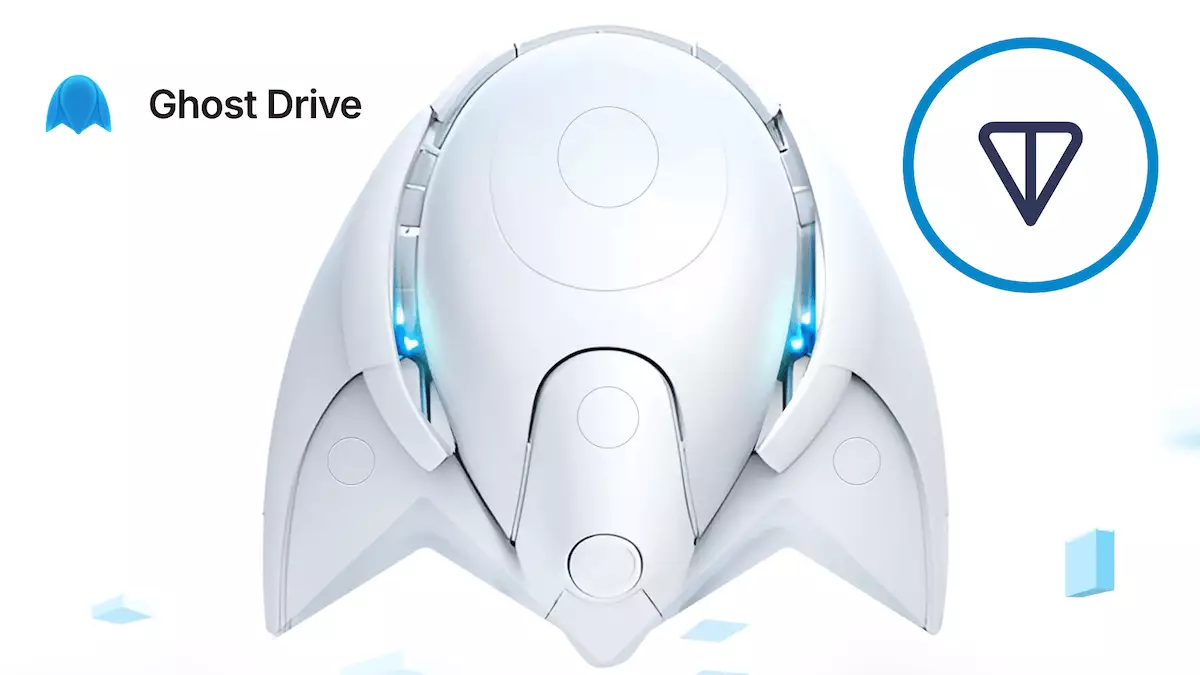In the rapidly evolving world of decentralized technology, GhostDrive is emerging as a pioneering force in the Web3 storage arena. Despite being a newcomer, it has garnered significant attention, with an impressive monthly user base exceeding 740,000 individuals. Designed as a Telegram Mini App on The Open Network (TON) blockchain, GhostDrive distinguishes itself from established Web2 players by offering innovative features that cater to the evolving needs of data storage users. Unlike conventional services such as Dropbox, which rely on subscription models, GhostDrive employs a multifaceted revenue generation strategy that includes pay-per-view, streaming, and advertising networks.
GhostDrive’s unique architecture is underpinned by a sophisticated decentralized infrastructure that includes low-Earth orbit satellite nodes. This commitment to decentralization emphasizes enhanced data security, censorship resistance, and user autonomy. By prioritizing user control over their data, GhostDrive stands in stark contrast to large tech companies that dominate the secure data management landscape. The decentralized nature of GhostDrive not only mitigates the risks associated with data storage but also sets a new paradigm focused on privacy and user empowerment.
One of the most noteworthy technical innovations introduced by GhostDrive is its Decentralized Physical Infrastructure Network (DePin). This advanced network utilizes TON’s Layer 2 hot storage technology while also integrating the cold storage capabilities offered by Filecoin. By addressing two significant pain points—elevated on-chain storage costs and sluggish data access speeds—GhostDrive revolutionizes the user experience in decentralized storage. Filecoin is known for its secure data distribution, yet users often encounter difficulties when retrieving their data. GhostDrive vastly improves this situation by enabling quick and inexpensive access to stored data, delivering a more seamless experience for users accustomed to traditional services.
The benefits of decentralization inherent in GhostDrive’s framework cannot be overstated. By dispersing data across various nodes, the platform minimizes the potential threats posed by targeted attacks or unauthorized breaches, which are persistent risks for centralized platforms. The security offered by GhostDrive ensures that users have complete control over their files, allowing them to encrypt data before it even leaves their devices. This level of privacy is unattainable with Web2 providers, where intermediaries often retain access to user data, exposing it to third-party and government requests.
Moreover, GhostDrive provides a degree of transparency that traditional storage providers cannot match; every interaction with user data is chronicled on an immutable blockchain ledger. This transparency promotes user trust and assurance, a critical factor in today’s data-centric world.
What sets GhostDrive apart in the competitive landscape is its innovative use of the TON blockchain to tokenize user data. By converting various file types into digital assets, users can trade or sell their files as they see fit. This tokenization not only enhances the value proposition for users but also similarly offers them tangible incentives as compared to conventional cloud storage solutions.
GhostDrive’s ambition extends beyond the provision of straightforward storage solutions; it seeks to foster a vibrant community through a rewards program. Users can earn points and bonus storage by engaging with the platform and inviting others to join. This approach is in stark contrast to the subscription-based models adopted by legacy providers like Dropbox, which largely neglect user engagement.
Wrapping everything together, GhostDrive’s ability to provide a decentralized, user-focused alternative to traditional storage solutions positions it as a potential leader in the Web3 storage sector. With its deep integration of TON and Filecoin, the platform promises fast, reliable, and cost-effective data retrieval—features that are increasingly becoming indispensable to users in their search for secure data management alternatives.
As GhostDrive continues to refine its offerings and expand its user base, it may well set new standards in the realm of data storage, marking a significant shift toward a more decentralized, efficient, and user-control-centric future.

